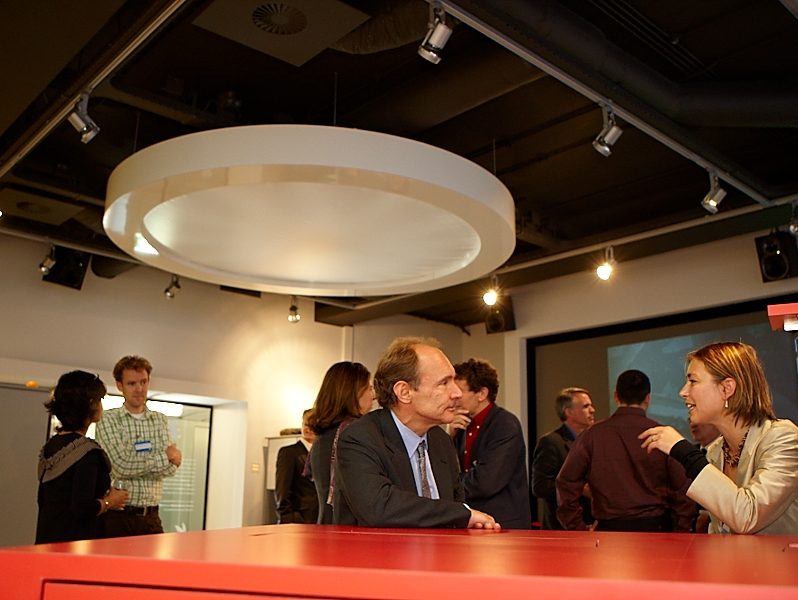Lora Aroyo is research scientist at Google Research, NYC where she works in the area of Responsible AI specifically focussing on research for Data Excellence, e.g. metrics and strategies to measure quality of human-labeled data in a reliable and transparent way.
Lora is an active member of the Human Computation, User Modeling & Semantic Web communities. She is president of the User Modeling community UM Inc, which serves as a steering committee for the ACM Conference Series “User Modeling, Adaptation and Personalization” (UMAP) sponsored by SIGCHI and SIGWEB. She is also a member of the ACM SIGCHI conferences board.
Prior to joining Google, Lora was a computer science professor at the VU University Amsterdam. Since 2010 she has actively worked towards shaping the concept of “User-Centric Data Science“, which ultimately led to the forming of and her heading the User-centric Data Science group at the Department of Computer Science, Vrije Universiteit Amsterdam, The Netherlands and further extending collaborations on this as a visiting scholar at the Columbia Data Science Institute at Columbia University.
Her team invented the CrowdTruth crowdsourcing method and applied in various domains such as digital humanities, medical and online multimedia. She is a four times holder of IBM Faculty Award for her work on CrowdTruth: for crowdsourcing ground truth data in the context of adapting the IBM Watson system to the medical domain and applying CrowdTruth for capturing ambiguity for the purpose of understanding misinformation.

As a Chief Scientist at a NY-based startup Tagasauris (currently seeen.com) Lora guided the human-in-the-loop strategies as part of the hybrid machine learning and human-assisted computing platform for multimedia enrichment (e.g. video, images, and text) with meaningful information about its content, and ultimately improve video search and discovery.
As an expert in user-centric data science, Lora conceived the vision of an user-centric experimental lab for computer science researchers at the VU University Amsterdam. She headed the team that made it possible in 2010 to open VU INTERTAIN Lab – the first of its kind in an academic environment. Throughout her career, Lora was a principal investigator of a large number of research projects, she organized conferences, workshops, and tutorials to bring together methods and tools from human computation, linked (open) data, data science & human-computer interaction with the goal of building hybrid human-AI systems for augmenting both machine and human intelligence for understanding text, images, and videos with humans-in-the-loop and machines-in-the-loop. Her research projects focussing on semantic search, recommendation systems, personalized access to online multimedia collections have a major impact and established her as a recognized leader in human computation techniques for specific domains, such as digital humanities, cultural heritage, and interactive TV.

understanding ambiguity with humans in the loop: teaching machines to deal with ambiguity in text, image & video processing;
augmenting intelligence: improving interpretation abilities of text, images, and videos with humans-in-the-loop and machines-in-the-loop;
hybrid human-AI systems: harnessing the power of the crowd and AI to improve recommendation systems, semantic search, access to online multimedia collections in domains like digital humanities, cultural heritage, and interactive TV.
Research projects, where Lora Aroyo was a principal investigator (PI):
- ReTV: Reinventing the TV for the Digital Age: Re-purposing digital content across Smart TVs, Web and mobile applications, social media and other emerging platforms
- Capturing Bias: Diversity-aware Analysis of Bias in News Videos: models for bias- and diversity-aware accuracy measures for reliable and explainable data analysis
- CrowdTruth: disgreement-based metrics for quality beyond ground truth data
- Dr. Watson: Gamification of Ground Truth Collection for Medical Texts
- Crowd-Watson: Framework for Crowdsourcing Ground Truth Data
- Crowd Truth: Metrics to Evaluate Crowdsourced Ground Truth Data
- CLARIAH: Common Lab Research Infrastructure for the Arts and Humanities
- DIVE: Event-centric Exploration of Linked Heritage
- Accurator: Annotating Fashion with Nichesourcing
- SealincMedia: Socially-enriched Access to Linked Cultural Media
- ControCurator: discover and understand controversial topics and events
- VISTA-TV: Combining LOD and behavioral information for TV analyses
- PrestoPrime: WAISDA? Crowdsourcing Game for Video Annotation
- NoTube: integration of Web and TV data with the help of semantics
- CHIP: Cultural Heritage Information Personalization
Check also:
- Twitter stream at @laroyo
- SlideShare presentations
- ACM distinguished speaker profile and book me for a talk
- https://en.wikipedia.org/wiki/Lora_Aroyo

